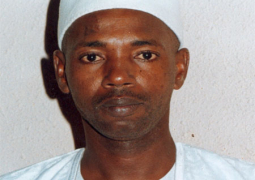The United Nations Children's Fund, UNICEF, has called for increased investment in
According to the UN agency, many of the millions of African children who do not live to see their fifth birthday could be saved with greater investment in basic health services and infrastructure.
These investments in children's health, education and well-being will not only save lives, but will also improve a nation's future development.
This is according to a statement issued by UNICEF on the commemoration of the Day of the African Child 2010 on the theme: "Planning and budgeting for children, our collective responsibility."
The Day of the African Child, DAC, commemorates a 1976 march in
To honour the memory of those killed and the courage of all those who marched, the Day of the African Child has been celebrated on 16 June every year since 1991, when it was first initiated by the Organisation of African Unity. The day also draws attention to the lives of African children today.
"Evidence consistently shows that where children and mothers have poor health, poor nutrition and inadequate education they earn less, are less productive members of society and they pass this poverty on to the next generation," the statement added.
"Investing in children today will yield benefits for generations to come," said
It said governments must promote adequate budget allocations for children and ensure that poverty reduction strategies and national development plans are child-centered. "Now more than ever we have to make sure that children are on top of the development agenda. Through a range of declarations and targets, African governments have committed to provide 15 per cent of their national budgets for health, 20 per cent for education and 10 per cent for agriculture, and 0.5 per cent of GDP for improved water and sanitation," the statement stated.
UNICEF noted with gratitude that some African nations have made positive strides to achieve their budgetary and fiscal targets, especially in health and education. "There are many examples of low-income countries achieving strong returns from budgets that concentrate on human development," the statement said.
It added that through strategic investments in the survival and well-being of children, even countries with limited resources like
"In recent years, school enrolment rates in sub-Saharan Africa have been increasing much faster than they did in the 1990s, with countries including
UNICEF, the statement went on, is working with governments throughout Africa and other regions to analyse their state budgets with regards to its impact on children in order to facilitate a more effective use of public finances for social purposes.



